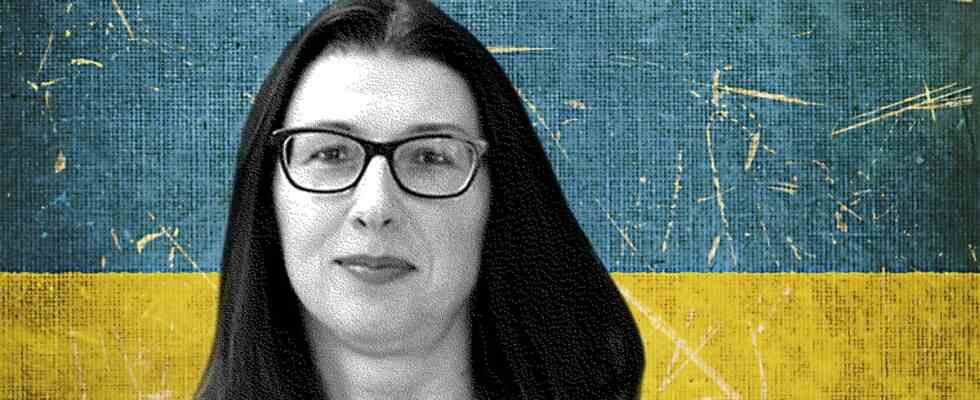Sunday morning, March 27, 2022, starts fairly early for my four colleagues, the university driver and myself. We have to be at the border by nine o’clock, a professor from the partner university PH Ludwigsburg drives to us with two other people for two days to deliver the donations in kind. All the “boys” and I are at the meeting point on time, despite the time change. The professor calls just before the border, and his colleague S. already has a good idea of what it’s going to be about: the Germans don’t have passports with them, only ID cards, but these aren’t enough as soon as they leave Romanian sovereign territory and thus the EU. The carelessness of the EU, we already know that.
Instead of meeting at the student exchange, you meet in the parking lot
S. explains to the Ukrainian border police officer that they are our friends from a partner university, they are on an official mission, they will not enter Ukraine at all, we are only transshipping – in the so-called neutral border area. The border policeman is very accommodating, which cannot be taken for granted. Shortly afterwards a happy reunion in the parking lot. That’s how you meet again. A planned student exchange in 2020 did not take place because of the pandemic, an exchange like today was never planned… Parcels, boxes and bags are quickly reloaded. One box touches us in particular: It is packed by students from the Sindelfingen secondary school, decorated with paper hearts and written in Ukrainian and English: “We are praying for you”, “I hope you can do it”, “You are not alone”. . We have been aware since the first day of the war that we are not alone. This feeling gives us an incredible amount of strength and hope in this time of “infinite solar eclipse” (I’ll quote “my” Rose Auslander). We talk for another quarter of an hour, the wind is icy and doesn’t give us a chance for a longer conversation. A hug and the promise to make shish kebabs together next time and celebrate, not in the border area.
Things are sorted in the dormitory, some remains for people who live in the dormitory, another part goes to Kyiv, a few boxes are packed for Bilhorod-Dnistrowskyj in the Odessa region.
We will start the next morning in exactly the same way: a large shipment of baby items and 880 doses of insulin arrives from Iaşi in Romania. I am writing to a few students who wanted to get involved. Two report back immediately, we can count on them.
Meanwhile, I realize that other things are catching up with me – us – than this marathon with humanitarian aid. Cultural matters take their toll, so to speak. The trilingual anthology “Mikrolithen: Jenseits von Celan”, which the Institute for German Culture and History of Southeast Europe and our cultural association had almost ready to print before February 24th and only had to correct a few small errors, has been completed by our illustrators . The problem, however, was that we wanted to publish them in the Chernivtsi publishing house XXI, and their high-quality books had previously been printed in Kharkiv. The director writes to me that he is now trying to get contracts with the western Ukrainian printers for other planned books, but it is not easy. And his long-term dream is to find investors for a state-of-the-art printing plant in Chernivtsi. I really hope his dream could come true. There will be serious changes in all areas, including the economy, nationwide anyway.
So now our art is going to Ingolstadt and Stuttgart
I received an e-mail from the artists’ association Pictoric, in which illustrators who were friends sent me information on the current art project “Ukraine at War”. Images and texts in English already exhibited in several locations in European countries, the electronic files will be made available if interested. I look at the website, I find some of the pictures very good; The information is then sent to friends and institutions in Germany and Austria related to art, after two or three days the first feedback comes, the Theater Ingolstadt would exhibit about 15 pictures, the Literaturhaus Stuttgart would be interested. I am happy and wish that pictures and artists will find a broad audience.
The Theater Bremen is doing a solidarity event, the Stadttheater Fürth is also planning a benefit event, the donations will go to us. I talk to a colleague from literary studies about the fact that it would be nice if this money could also be used to support something theater-related. A few young actors from other cities are staying in Chernivtsi, and Neda Nezhdana, a well-known writer, dramaturge and translator in the theater world, lives here now – maybe this newly created creative potential could be combined with local artists, something Something experimental would do the Czernowitz cultural scene good.
And then there is the request for a zoom interview for a literary feature about Rose Auslander for an Austrian radio station. I can’t say no to Rose Auslander. A balancing act between a little cultural and a lot of crisis management is still manageable.
Read more episodes of this column here.

